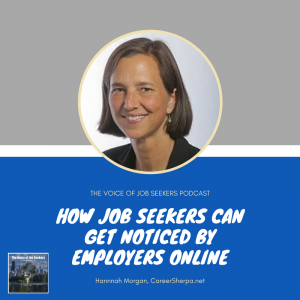
Podcast: Play in new window | Download | Embed
Subscribe: Apple Podcasts | RSS
You are more than welcome to join the discussion. Here are three ways you can:
– Call and leave a voicemail at 708-365-9822, or text your comments to the same number
– Go to TheVoiceofJobSeekers.com, press the “Send Voicemail” button on the right side of your screen and leave a message
– Send email feedback to [email protected]
- Become well known for something because it’s personal branding, but be the go-to source, be relied on
- Treat people well, treat everyone with tact and respect
- Likability factor is important – What’s the use of being the smartest in the room if no one wants to talk to you
- Is what I am saying resonating with employers?
- The airport test: Can I see myself stranded with this person?
- Is getting attention means getting hired?
- The right thinking process: job seekers should think long-term than for now
- Become a facilitator – orchestrate introductions – bring people together
- Lend your voice to the industry at large – productive relationships are long-term
- A connection online means nothing without it going beyond
- A newsletter to your contacts (through your website) keeps you and contacts engage
- How to stand in your industry? Is each one different? Makes a difference in how often and who is your audience
Reminder:
I am here for you! Use my contact information above to inquire about individual or group coaching. You can also sign up for my weekly newsletter at the top right of my page. I try to pack as much value in my newsletter to more than 2,000 subscribers as possible.
Grab my updated “118 Job Search Tips for the Modern Job Search in 2018” here.


